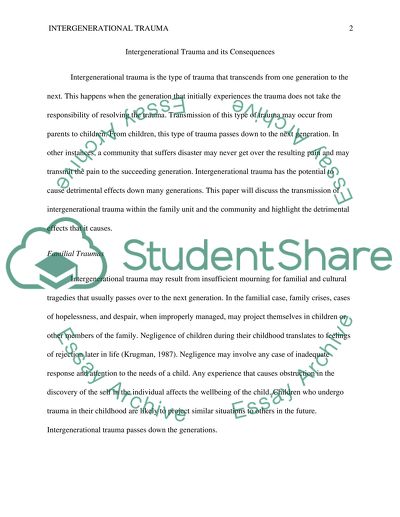Cite this document
(“Intergenerational Trauma and its consequences Essay”, n.d.)
Retrieved from https://studentshare.org/psychology/1464022-intergenerational-trauma-and-its-consequences
Retrieved from https://studentshare.org/psychology/1464022-intergenerational-trauma-and-its-consequences
(Intergenerational Trauma and Its Consequences Essay)
https://studentshare.org/psychology/1464022-intergenerational-trauma-and-its-consequences.
https://studentshare.org/psychology/1464022-intergenerational-trauma-and-its-consequences.
“Intergenerational Trauma and Its Consequences Essay”, n.d. https://studentshare.org/psychology/1464022-intergenerational-trauma-and-its-consequences.


